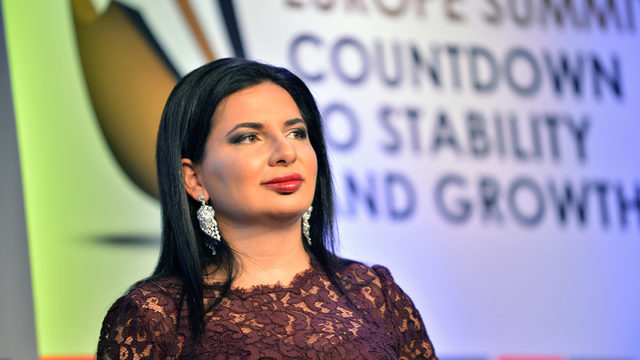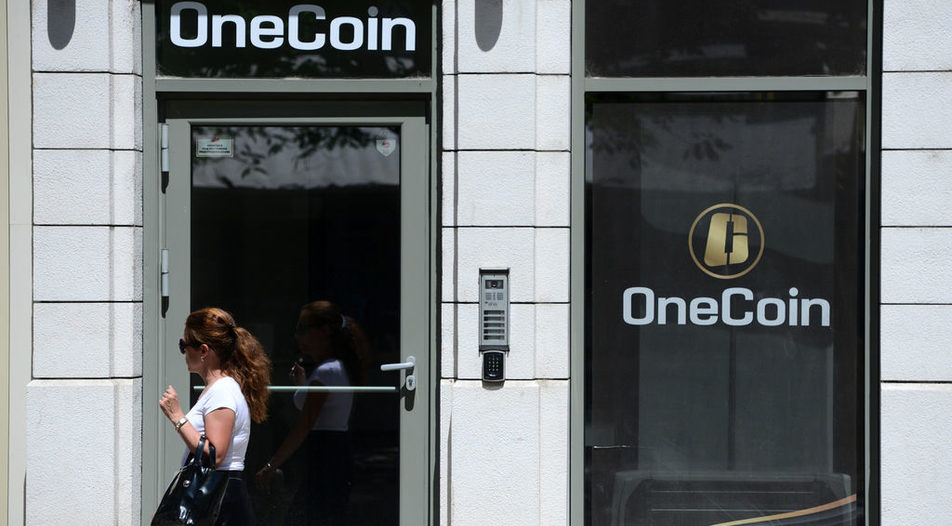• The links to the properties purchased and the companies that once were parts of the structure are already broken.
The actions of Bulgaria's criminal investigation authorities rarely provoke international media coverage response. However, when the Specialized Prosecutor's Office announced that in mid-January, jointly with its German peers and Europol it searched OneCoin offices, seized evidence and interviewed witnesses, the news appeared in numerous publications around the world - from the Finnish public television to specialized technology blogs.
The interest was caused by the fact that the company founded by the Bulgarian native holding a German passport, Ms Ruzha Ignatova, has long been accused by the media, analysts, and sometimes by the regulators, of operating a financial fraud scheme. There are suspicions that there is no real blockchain behind OneCoin and in the Bulgarian crypto community no one takes it seriously. The announcement of the Bulgarian Prosecutor's Office contains enough descriptions of the company to confirm earlier concerns and warnings: "an international criminal organization", a "large pyramid structure for commercial fraud", "money laundering" and even suspicions that "it may fund organized criminal groups and terrorist organizations."
The Bulgarian company serving the crypto currency, One Network Services, dismissed the allegations, saying the noisy action was part of a media campaign against it. In a statement broadcast shortly after the Prosecutor's Office announcement, the company complained that it was not asked about its opinion, and promised to inform the public about the development of the situation. In response to queries of Capital they maintained that they are "a Bulgarian company operating on the Bulgarian market and we can only answer for our activity here".
That's why they did not explain why the prosecutors suspect them of "doing business through hundreds of companies on four continents," neither did they release details about the companies in which Ms Ignatova is a shareholder or a manager. And they are important, because it is obvious that the actions of the Prosecutor's Office are only accelerating a process that has already started - the disintegration within the structures of OneCoin. The ownership of the Bulgarian companies was transferred to affiliated persons. In recent months, key people promoting the company left it, some are publicly distancing themselves from it and redirect their efforts to other projects like the Estonian DagCoin. Ruzha Ignatova herself has not appeared in public for months.
Catching the crypto-wave
Even now, in 2018, most people can hardly understand what is really going in the swarms of crypto-currencies. Even the biggest enthusiasts admit that among the new projects emerging on a daily basis with grand promises, there are some fraudulent schemes.
When OneCoin appeared in 2014, knowledge was still scarce. The growth in the Bitcoin price had already attracted some attention but the topic was still boutique and mainly computer specialists were interested it in. Against this background, in her first and only interview for Capital, Ruzha Ignatova explained she wanted to "democratize" the crypto-currencies by making them available for mass use. "Our idea was to make OneCoin like Facebook, because the most interesting things in recent years were iPhone, Google, things used by everyone, while the crypto-currency was intended for the elite only," she said.
In fact, the idea was obviously developed earlier, because YouTube contains videos showing Ms Ignatova promoting BigCoin, which seems like an early unsuccessful attempt to create OneCoin. It remains unclear why she abandoned the original name and idea and replaced them with new ones. But the enterprise was obviously able to start operating quickly because Ms Ignatova rapidly rose on the stage of public life. The creation of the image of "Doctor Ruzha" started with the Business Ladies Award in 2014. From 2015 onwards, it seemed that Ms Ignatova was ready to buy everything - properties for millions, magazine covers (among which the Bulgarian issue of Forbes), sponsored participation in business conferences (including The Economist), and lavish parties (where celebrities like Tom Jones sang).
OneCoin Central Bank
From the outset, the crypto-experts' biggest concern about OneCoin has been that, unlike most other digital currencies, it is not decentralized. Since its inception, Bitcoin attracts interest because there is an open algorithm behind it, and there is practically no human intervention. The computer network of currency users verifies each transaction.
With OneCoin, the code behind everything is located on its servers and is hidden (many suspect that at the beginning there was practically no blockchain). This makes the company a sort of central bank: it can change the rules at any moment. In addition, unlike other currencies, OneCoin is not publicly traded on stock exchanges, which further raises doubt that the announced price may have been manipulated. And the price and its steady growth are a key factor in the presentations to attract new customers.
However, the most significant accusations are directed at the multi-level marketing bonus scheme to attract new members. Based on its own claims, the company does not sell currency but education packages. They include tokens that can be used to "mine" onecoins. Their values vary over the years, starting from 130 and reaching 27,500 euro, but later on even more expensive packages appeared. Attracting new members brings bonuses to those up the chain. All of the above constantly leads to accusations that this is a Ponzi scheme, where a part of the newcomers' money is used to pay the bonuses promised to the old members. However, this can work only as long as there are new enthusiasts.
Pre-determined finale
OneCoin critics have long been seeing signs of a planned withdrawal. As early as the autumn of 2016, the management of five Ignatova-related companies was entrusted to Bozhidar Zahariev, who has all the characteristics of a "straw man" - a 25-years-old having several companies registered in his name yet having no real estate properties.
Until April 2017, the ownership of One Network Services via two companies (Pegaron Invest and Artefix Europe) was directly connected to Ruzha's mother, Veska Ignatova. But just as sanctions were imposed by the German financial regulator, BaFin, this situation drastically changed. Documents in the Commercial Register show that on April 17, Ms Ignatova sold Artefix, along with everything else down the chain, to a 25-year old man, Kristiyan Manolov. The young man seems to have made the deal of his lifetime because without having any company shareholding or any property in his own name, he acquired the servicing entity of a company ambitious to be the world leader in crypto-currencies for just 5000 levs.
An the beginning of 2017, three other companies owning properties (including the headquarters of OneCoin and the former landmark Krim restaurant in central Sofia, redeveloped as Ms Ignatova's residence), were transferred to a company owned by the Bulgarian financier Emil Harsev. He told Capital newspaper that he acted on behalf of a client.
While it emerged that the basis for the search in OneCoin offices was a request for legal assistance from the prosecutor's office in Bielefeld, Germany, which was conducting an investigation, it remains unclear who exactly is suspected and accused of what. One Network Services claim that they have not been provided with such information.
It is also strange that the German prosecutors have not issued a European Arrest Warrant, and therefore there are no persons wanted or detained. The chief of Bulgaria's Specialized Prosecutor's Office, Ivan Geshev, said that Ms Ignatova is accused in Germany but her name is not on the Europol lists and the Bulgarian company claims that no charges were brought and no persons were accused. Capital newspaper sought comment from Europol about the involvement of the organization in the operation but received no answer.
Will it be fatal?
Whether the investigation will bring the end of OneCoin, it is still difficult to say. The confiscation of equipment is not an insurmountable problem in itself, although in its statement the Bulgarian company is even talking of possible bankruptcy.
So far, OneCoin has managed to deal with the reputational damage from all sorts of inspections and warnings. This time, however, there are additional signs of collapse. Key figures, leading the company's presentations and responsible for its network in entire countries, are leaving and moving to other multi-level projects. Several of them openly distance themselves from OneCoin and promote DagCoin. There are no public explanations from the other presenters, and the only communication comes from One Network Services, which however speaks only about itself. One Network Services Ltd. is not authorized and cannot answer questions related to Ms Ignatova's property rights, they say.
However, the lack of any other communication may scare customers that the ship has been abandoned not only by the sailors but the captain as well. In her interview for Capital in 2015, when asked how the public can be sure that she would not decide to disappear with the money from the packages at some point, Ms Ignatova replied: "The risk that someone can disappear is always there. You either trust me, or you don't trust me. Generally, you know where I am."

• The links to the properties purchased and the companies that once were parts of the structure are already broken.












